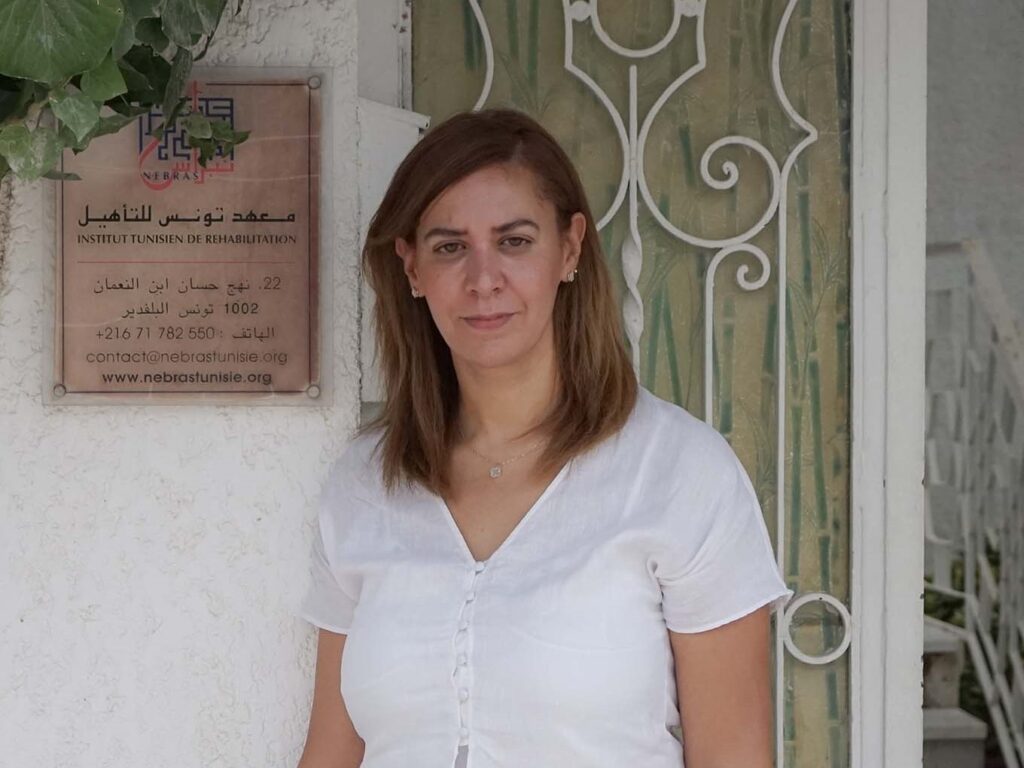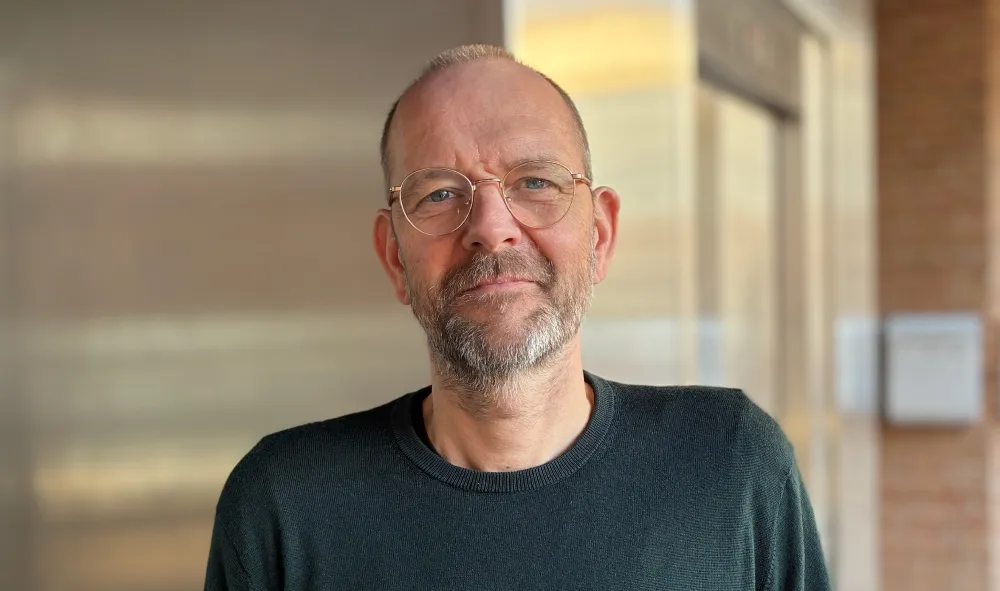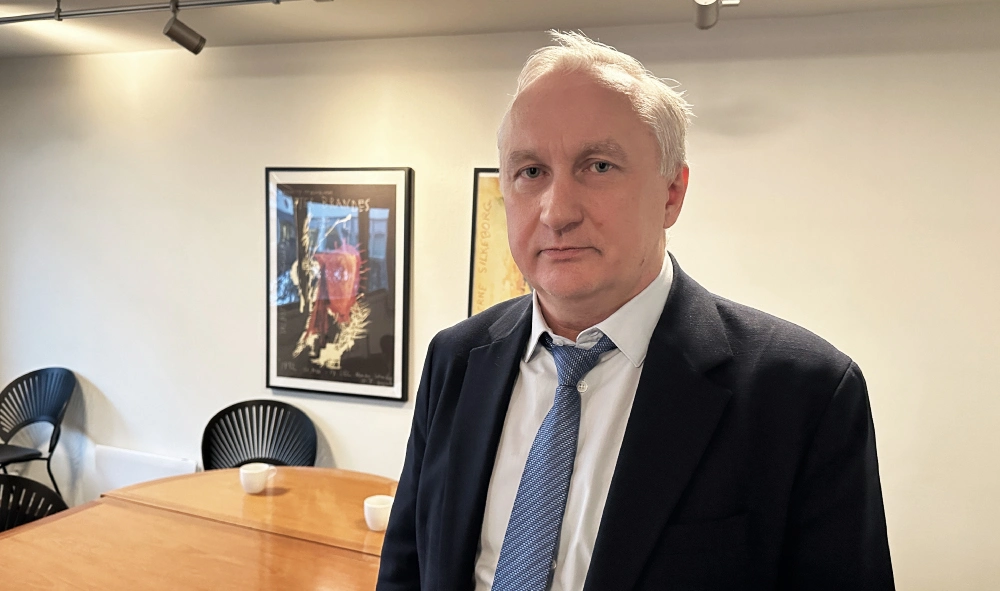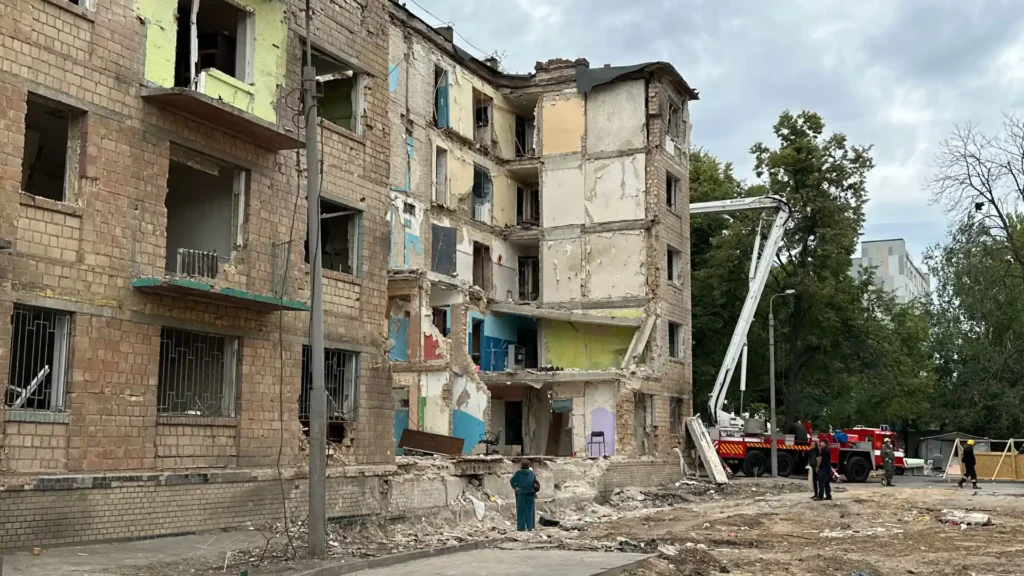Tunisia’s rehabilitation centre for torture victims, Nebras, is an important partner to DIGNITY and a small but efficient organisation with impressive results
In a large, white villa behind tall walls on Hassen Ibn Annouman Street close to the city centre of Tunis, Nadya Ghaoui resides as director of the Nebras Institute –Tunisia’s only rehabilitation centre for both torture victims and other patients with serious traumas.
»We are a small team of six permanent members with different backgrounds, but it is a versatile team committed to human rights«, explains Nadya Ghaoui.
Considering Nebras’ limited staff, their results are remarkable. Since 2014 they have treated 600 patients including, among others, victims of torture, victims of human trafficking, members of the LGBT+ community who have been victims of assaults, children who are victims of sexual abuse, and asylum seekers and other migrants who have had traumatizing experiences on their journeys.
During just the first nine months of 2022, Nebras received 150 new patients and manages 25 patient sessions a week. Each patient receives a total of 12-16 sessions at Nebras.
»Of course, we would like more staff and more space. For instance, we have a very small waiting room. And women, who have been violated sexually, do not like to wait there together with others. So we try to schedule these women solely in the afternoons. But that is not always feasible«, says Nadya Ghaoui.
Patients without food and housing
Patients at Nebras generally have other problems than just the effects of their trauma.
»You could argue that therapy is a luxury for people who have no roof over their head and not enough to eat. Our mission may be to focus on the trauma, but we can’t improve their quality of life if their most basic and vital needs are not met. We reimburse the patients’ cost of transportation, which is absolutely necessary. But it is my impression that many of our patients walk all the way to therapy and use the transportation reimbursement to buy food«, says Nadya Ghaoui.
Nebras gets in touch with new patients very much through word of mouth and through a close cooperation with other civil society organisations and Tunisian authorities.
»Victims of torture tell other victims about us. We use the International Day in Support of Victims of Torture on June 26th as an occasion to talk about our work in the media, we use social media and get inquiries via Facebook. And if you enter ‘specialised centre for psycho-trauma’ into Google in Tunisia, you will be sure to find Nebras«, says Nadya Ghaoui.
Nebras has expanded its field of work:
»According to our original mandate, in the post-revolutionary context after the Arab Spring, we dealt with classic torture victims. But since then, we have made the strategic decision to expand our activity. To make sure that our projects are durable, we need not to limit ourselves to offering therapy to the direct and indirect victims of torture. For instance, when Law No. 58 was passed in 2017 in order to fight violence against women, we started a collaboration with the Ministry for Women’s Affairs to create a project to offer therapy to women and girls, who are victims of sexual aggression«, says Nadya Ghaoui.
For the first two years of its existence, Nebras was entirely financed by DIGNITY through the Danish-Arab Partnership Programme (DAPP). Later, other donors joined, such as the Sigrid Rausing Trust, various UN funding bodies, the European Union, and the Swiss Embassy.
»I’m on a constant search for funding«, explains Nadya Ghaoui and mentions a range of new projects which she is trying find funding for.
Cooperation with the state
Nadya Ghaoui and Nebras network closely with many other civil society organisations that have emerged in the aftermath of the Arab Spring. Nebras also works with state institutions such as the Ministry of Health and the Ministry of Social Affairs.
»Our cooperation with state actors is necessary to guarantee sustainability in our work. But it is characteristic for the situation in Tunisia that civil society has to take care of many important tasks, such as the rehabilitation of torture victims, and that the state has not been able to shoulder that even 11 years after the revolution«, says Nadya Ghaoui.
When it comes to therapy, Nebras is highly inspired by methods used at DIGNITY:
»In physiotherapy, we practice the Pain School protocol. Our psychologists use the Narrative Exposure Therapy and also family therapy. All of these are therapy forms that we have learned from the Danish model, which has inspired us a lot. But we have also developed our own protocols. To us, DIGNITY is not primarily a donor but rather a technical partner, with whom we have a constant exchange«, says Nadya Ghaoui.
BIO: Nadya Ghaoui
Nadya Ghaoui is a Tunisian activist who defends human rights. Nadya has a master’s degree in sociology. She graduated from the University of Social Sciences and Humanities of Tunis. In 2003 she began her career as a director of a shelter for single mothers. After the Jasmine Revolution of 2011 and in preparation for the elections of the National Constituent Assembly, Nadya joined the logistics department at the independent election authority as a manager. In 2011 she became a programme manager at DIGNITY, piloting and coordinating national and regional projects that enabled professional actors to identify victims of torture and direct them to the appropriate services that meet their needs. During her work with DIGNITY, she actively contributed to the establishment of the Nebras Institute for Rehabilitation, which was inaugurated in December 2014, as a space for counselling. In 2020, Nadya Ghaoui was solicited by the board of Nebras to occupy the position of executive director of the institute.





